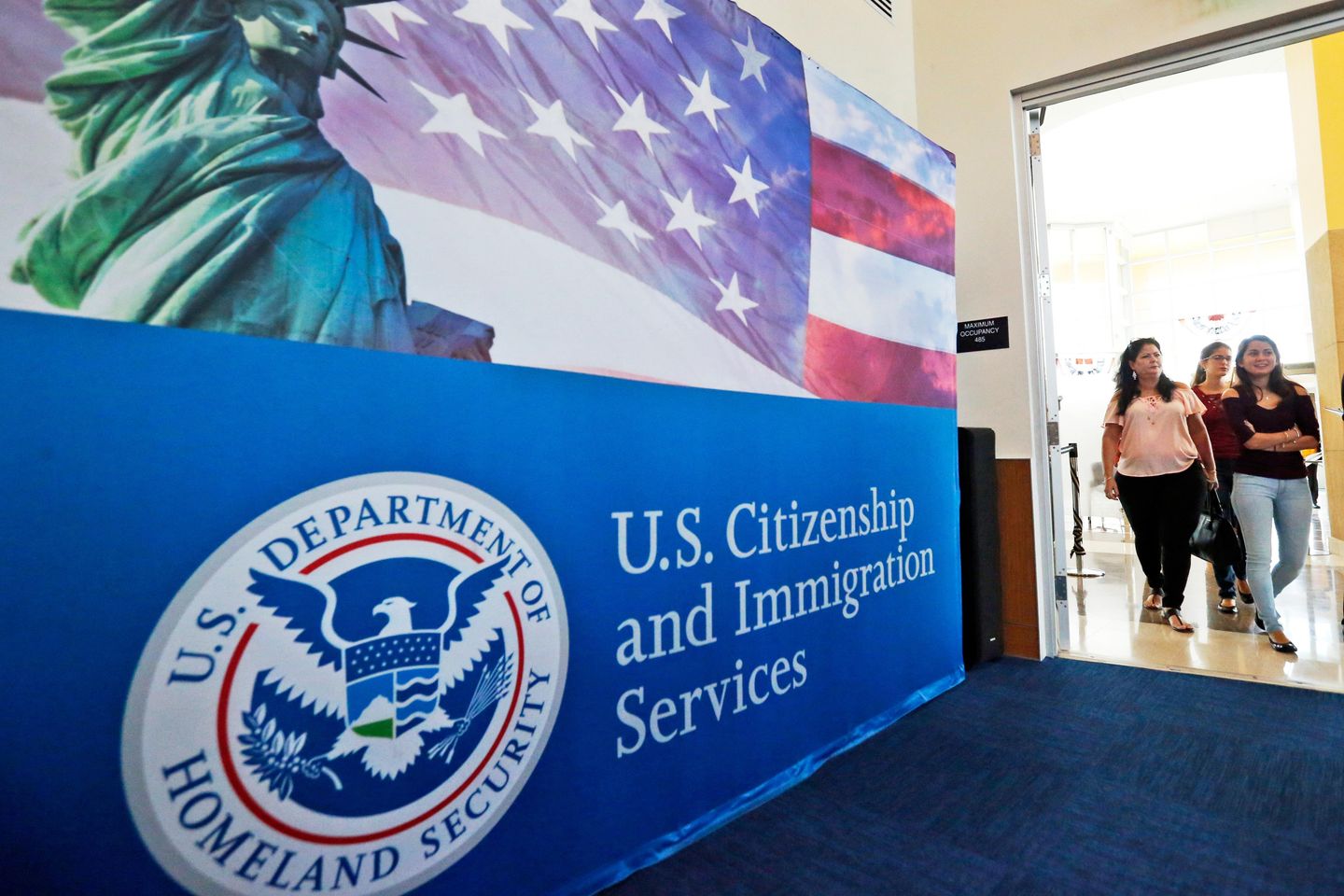
The Department of Homeland Security’s third immigration agency, which usually handles legal applications, is getting deeper into the law enforcement game as well.
U.S. Citizenship and Immigration Services announced new regulations Thursday creating a role for special agents, or criminal investigators, empowered to carry guns, execute search warrants and make arrests.
That puts them on par with other special agents, such as those at the FBI, Drug Enforcement Administration and Homeland Security Investigations.
Joseph Edlow, director of USCIS, said the agency has always been part of law enforcement, serving as a gatekeeper to block bad actors from entering the U.S. and sniffing out fraud in legal immigration and visa applications.
But in the past, it would refer those fraud cases to other agencies, such as HSI, which is a part of U.S. Immigration and Customs Enforcement. Now USCIS will investigate the cases itself.
Mr. Edlow said that will free ICE up to focus on its core mission of arresting migrants and disrupting criminal organizations.
“This historic moment will better address immigration crimes, hold those that perpetrate immigration fraud accountable and act as a force multiplier for DHS and our federal law enforcement partners, including the Joint Terrorism Task Force,” Mr. Edlow said.
Homeland Security said it granted the new powers in compliance with President Trump’s executive order this year directing the department to better leverage its resources.
USCIS under Mr. Trump has also leaned more into the deportation side of immigration by claiming the power to issue orders of expedited removal.
DHS, born out of the chaos of the 2001 terrorist attacks on the U.S., has three immigration agencies. ICE has jurisdiction over interior arrests and deportations, plus prosecutes cases in the immigration courts. Customs and Border Protection handles arrests at the borders and guards the airports and seaports.
USCIS has been focused on doling out legal immigration benefits, such as green cards, citizenship and work visas, along with playing a major role in judging asylum applications.
Those programs have attracted a massive amount of scams, and USCIS has an anti-fraud unit, though in the past it usually just developed the leads before turning them over to other agencies.
The agency did have some leftover criminal investigators from the legacy Immigration and Naturalization Service.
But USCIS leaders, particularly in Democratic administrations, were uncomfortable with the “gun toters,” as the investigators called themselves. They were told to focus on misconduct among agency employees themselves, and there was an implicit decision made not to fill the special agent positions as they retired.
Under the new regulation announced Thursday, the special agents will be allowed “to use nondeadly force, deadly force (in situations where the designated immigration officer or other persons are in danger) and initiate a vehicular pursuit to apprehend fleeing suspects who are attempting to avoid apprehension.”
The investigators will go through a training course similar to what’s required by ICE or CBP law enforcement personnel.















